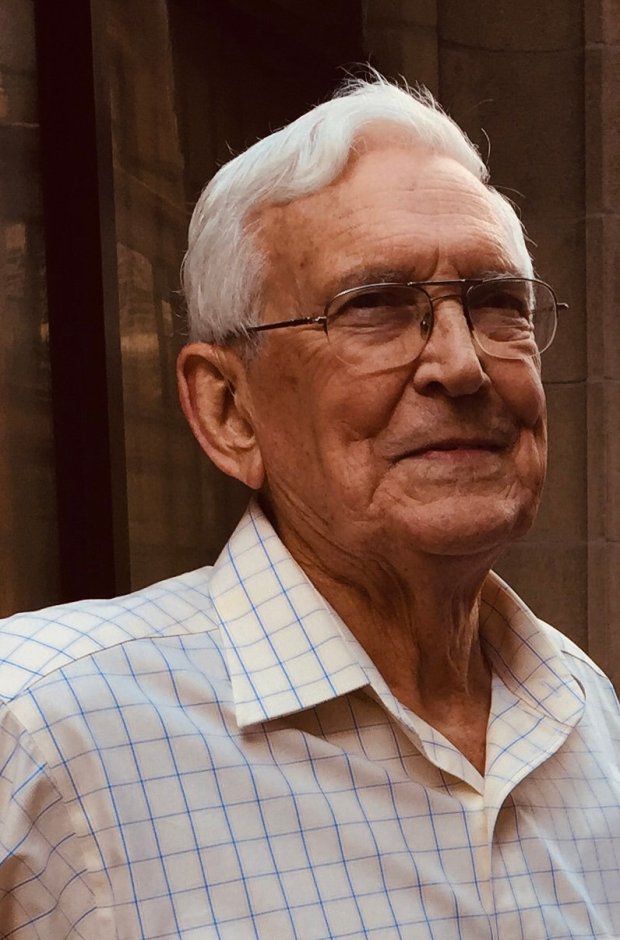Dr. John Phair was an infectious diseases professor at Northwestern University’s Feinberg School of Medicine and an early leader in investigating HIV infection.
Phair was “a great mentor, instrumental at the beginning of the AIDS pandemic to keep people sane and sensible during the biggest health care crisis of the day,” said Dr. Robert Murphy, an infectious diseases professor at Northwestern.
Phair, 89, died of heart failure on Feb. 19 at the Westminster Place retirement community in Evanston, said his daughter, recording artist Liz Phair. He previously lived in Winnetka.
Born in Paris, France, John Philip Phair was the son of Dr. John J. Phair, a pathologist who during World War II led the Army’s Meningitis Division of the Commission for the Control of Influenza and Other Epidemic Diseases. His mother, Phillis Wolfe Phair, was a registered nurse.
Raised in Boston, Louisville and Cincinnati, Phair received a bachelor’s degree in 1956 from Yale University, where he was captain of the swimming team and was selected for the All-American team his senior year. He got his medical degree from the University of Cincinnati in 1960 and afterward returned to Yale for training in internal medicine and infectious diseases.
In 1962, Phair moved to Hiroshima, Japan, to study the effects of radiation among atomic bomb survivors for two years for the federal Atomic Bomb Casualty Commission. He returned to the U.S. in 1964 and resumed medical training at Yale. After completing a residency in 1965 and an immunology fellowship in 1967, Phair joined the faculty of the University of Cincinnati College of Medicine.
In 1975, Phair took a sabbatical to work in an immunology lab in Sheffield, England, and he moved his family overseas. The following year, he accepted the position as chief of the division of infectious diseases at Northwestern, and he and his family settled in Winnetka.
Beginning in the late 1970s, Phair and other infectious disease researchers were confronted by HIV, a stubborn and deadly new virus whose cause and method of transmission initially confounded them. In addition to his role as a key researcher of HIV infections and AIDS, Phair assumed a public role as an advocate for more funding to understand AIDS, as well as in educating the public about the disease.
“With the AIDS crisis, public hysteria has surfaced … stimulating irrational, insensitive and sometimes illegal responses,” Phair wrote in an opinion article in the Tribune in 1986. “Such actions threaten to tarnish our history … and could be as paralyzing as the disease itself. Clearly, concern about AIDS is appropriate, and there must be a balance between public health and respect for civil liberties. But certain facts are known, and should prevent us from taking unreasonable, counterproductive and potentially regrettable actions.”
Liz Phair said her father championed AIDS patients early on when “no one wanted to treat them.”
“Throughout my career, people would come up to me from that community and say, ‘Your dad is a hero of ours,’” she said.
Dr. Frank Palella, who oversees the Potocsnak HIV and Aging Center at the Feinberg School, recalled his infectious diseases fellowship at Northwestern in the early 1990s under Phair and Murphy.
“Unless you were around at the time and in the thick of it, it’s difficult to imagine how stressful the (AIDS) situation was medically, socially and societally,” Palella said. “John responded to the situation with his characteristic selflessness and lack of concern about what might be socially desirable but what was the right thing to do. He put Northwestern on the map through his research efforts and through clinical care in the outpatient clinic that he established a few years later.”
From 1987 until 2012, Phair chaired the executive committee of the Multicenter AIDS Cohort Study — known as MACS — which is a National Institutes of Health-supported investigation of the natural history of HIV. Phair collaborated on the study with investigators from Johns Hopkins University, the University of Pittsburgh and the University of California at Los Angeles.
“He was able to bring together four very ambitious, strong-willed principal investigators who formed the MACS,” said UCLA infectious diseases professor Dr. Roger Detels. “Under his leadership, the MACS published over 2,000 scientific papers contributing to our understanding of the AIDS pandemic and the biologic consequences of HIV infection.”
In 1987, Phair established the Chicago AIDS Clinical Trials Group, which evaluated treatment of HIV infection and its complications.
Dr. Bruce Polsky, now the chair of the department of medicine at New York University’s Long Island School of Medicine, got to know Phair while working on the AIDS Clinical Trials Group on the East Coast.
“He brought me and so many others of my generation into leadership positions and set us on a trajectory of early and sustained success in clinical research and academic medicine,” Polsky said. “I owe much of what I have accomplished to the opportunities afforded me by John, among others.”
In 1987, a Wilmette child was to be the first Chicago-area pupil with AIDS to attend a public school. Dr. Ellen Chadwick, retired head of Northwestern’s section of pediatric, adolescent and maternal HIV infection, was the youngster’s doctor. She asked Phair to help quell concern over the situation.
“He was just so calming and reassuring while educating the public about the fact that this child was not going to put their own children at risk,” Chadwick said. “And in general, he was a great advocate for his patients and (helped) the public (learn) about HIV and AIDS in a very reassuring way. It wasn’t a confrontational way. He let people learn at their own rate — he was just a master at that.”
Polsky recalled the early resistance that the AIDS Clinical Trials Group encountered from the academic research community.
“John deserves much of the credit for engaging AIDS treatment activists in these early days and bringing them into the governance of the organization, creating transparency and increasing the legitimacy of the work we were doing,” Polsky said. “John, along with others such as Tony Fauci, saw that this was the correct direction to produce the outcomes that all stakeholders were seeking.”
From 2000 until 2002, Phair chaired the AIDS Research and Advisory Committee of the National Institute of Allergy and Infectious Diseases. He was also published in medical texts and journals.
Phair retired from Northwestern in 2000, but he remained involved with the MACS study until 2019, his daughter said.
Upon Phair’s retirement, Northwestern established an endowed professorship in his name, the John Philip Phair Professor of Infectious Diseases chair, as an acknowledgement of Phair’s dedication and leadership in the field.
In addition to his daughter, Phair is survived by his wife of 66 years, Nancy; a son, Phillip; and three grandchildren.
A service is planned for later this year.
Goldsborough is a freelance reporter.




